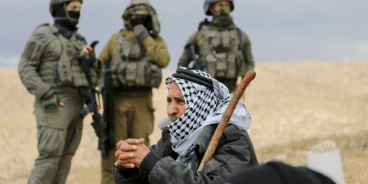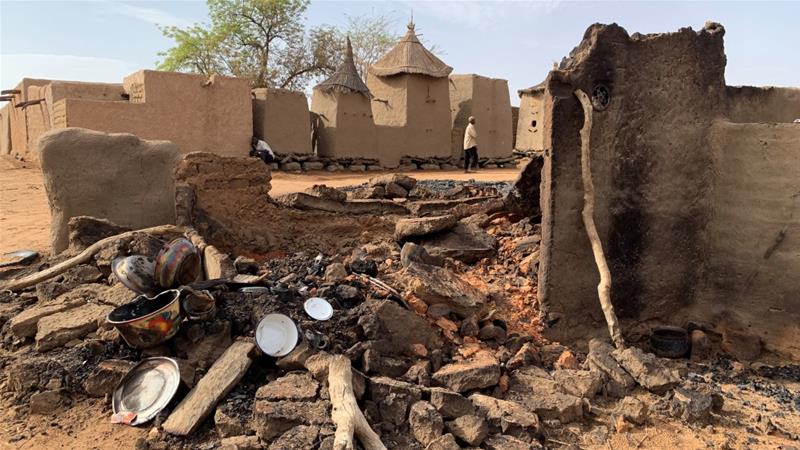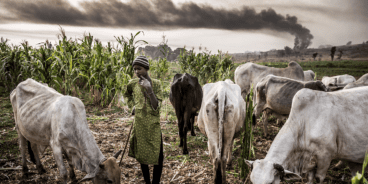

Atrocity Alert No. 160: Mali, Yemen, and World Refugee Day
Atrocity Alert is a weekly publication by the Global Centre for the Responsibility to Protect highlighting situations where populations are at risk of, or are enduring, mass atrocity crimes.
Cycle of inter-communal violence in Mali intensifies
At least 41 civilians were killed in attacks on the villages of Yoro and Gangafani 2 in the Mopti region of Mali on Monday, 17 June. According to reports, 100 armed men attacked the villages and began shooting civilians, targeting individuals from the ethnic Dogon community. There were also reports that armed men stopped civilian vehicles on nearby roads, separating out Dogon villagers and executing them. At the time of publication, no group has claimed responsibility for the attacks.
Violence continues to increase in central Mali, particularly between the Dogon and Fulani communities. Despite a history of inter-communal tensions over access to land, water and grazing rights, the inability of the government to provide security – combined with the proliferation of small arms over recent years – has led to the rise of armed “self-defense groups.” At least 190 people, including dozens of children, were killed in two massacres during March and early June, with many smaller attacks also targeting civilians from one ethnic community or the other.
In a joint statement the UN Special Advisers on the Prevention of Genocide and the Responsibility to Protect, and the Special Representative for Children and Armed Conflict, said they were “extremely alarmed by the ethnically motivated attacks against civilians in central Mali” and called “on the authorities and all parties involved, including the international community, to fulfill their responsibility to prevent atrocity crimes and protect civilians.”
The Malian government, with the support of the UN peacekeeping mission (MINUSMA), must immediately investigate the attacks on Yoro and Gangafani 2 and ensure that those responsible for inciting, directing and perpetrating the attack are held accountable. When the Security Council considers the renewal of MINUSMA’s mandate later this week, members should prioritize civilian protection, and the need for ongoing efforts to prevent further identity-based violence. MINUSMA should support the government’s efforts to disarm armed groups and promote inter-communal dialogue.
UK arms sales to Saudi Arabia halted due to atrocities in Yemen
On 20 June the Court of Appeal in London ruled that the government of the United Kingdom had failed to adequately assess the actions of the Saudi/United Arab Emirates (UAE)-led military coalition in Yemen prior to issuing licenses for arms exports to Saudi Arabia. According to standards agreed upon by all European Union member states, governments should not license arms exports when there is a clear risk that weapons may be used to perpetrate violations of International Humanitarian Law (IHL). The court ruled that “the government made no concluded assessments of whether the Saudi-led coalition had committed violations of [IHL] in the past, during the Yemen conflict, and made no attempt to do so.”
Following the ruling the UK government suspended new arms sales to Saudi Arabia until an appropriate assessment is conducted. Several other European countries, including Austria, Finland, Denmark, Germany, Netherlands and Norway, have already halted the sale of heavy weapons to Saudi Arabia. On 20 June the United States Senate voted again to block the sale of weapons to Saudi Arabia and the UAE despite a threatened veto by President Donald Trump.
Since 2015 all parties to the conflict in Yemen have perpetrated grave violations of international human rights law and IHL, possibly amounting to war crimes. Parties to the conflict, including the Saudi/UAE-led coalition, have routinely used indiscriminate weapons on civilian-populated areas and targeted civilian infrastructure, such as schools and medical facilities, during airstrikes. According to data reported by the Armed Conflict Location and Event Data Project (ACLED) on 18 June, since 2015 more than 91,000 people have been killed in Yemen, including an estimated 11,700 fatalities resulting from “direct targeting of civilians.” The Saudi/UAE-led coalition is responsible for more than two thirds of all civilian casualties.
In keeping with the Arms Trade Treaty, all UN member states should immediately halt the sale of weapons to parties to the conflict who routinely violate IHL, including Saudi Arabia and the UAE.
Record 70.8 million people displaced by conflict, persecution and atrocities
Last Wednesday, 19 June, the UN Refugee Agency (UNHCR) released its annual “Global Trends” report in advance of World Refugee Day. According to the report, as of December 2018 more than 70.8 million people were displaced by conflict, persecution and human rights violations around the world. This number reflects a 2.3 million increase since 2017 and is the highest ever recorded in the organization’s almost 70-year history.
The number of people forcibly displaced worldwide includes 25.9 million refugees, half of whom are children below the age of 18. Demonstrating the dire consequences of atrocity crimes, 67 percent of refugees came from five countries where war crimes, crimes against humanity or genocide have recently occurred: Syria, Afghanistan, South Sudan, Myanmar and Somalia. For example, the civil war in Syria, now in its ninth year, is responsible for 6.7 million refugees and 6.2 million internally displaced persons. The UN Commission of Inquiry on Syria has documented widespread and systematic war crimes and crimes against humanity perpetrated by parties to the conflict.
Among the top ten countries where more than 41.3 million people are internally displaced, eight have recently experienced atrocity crimes, including Democratic Republic of the Congo, Nigeria, Yemen and South Sudan. The report also highlighted the plight of Venezuelan asylum seekers, who continue to flee the ongoing economic, humanitarian and human rights crisis in that country.
The dramatic increase in forcibly displaced people over the past two decades is not just a reflection of the expansion of conflicts where perpetrators are targeting civilians, but also of the longevity of crises preventing displaced populations from returning home. As noted by the head of the International Rescue Committee, David Miliband, “we are seeing a tragic retreat from diplomacy that should be addressing the root causes of conflict and displacement, whether in Libya or Yemen, Venezuela or Syria. Instead of pursuing accountability for war crimes and investing in peace-building, we are trapped in an age of impunity that is placing civilians, as well as humanitarians, in the crossfire, and driving thousands from their homes every day.”
Related Publications


Atrocity Alert No. 445: Sudan, Syria and Eritrea
